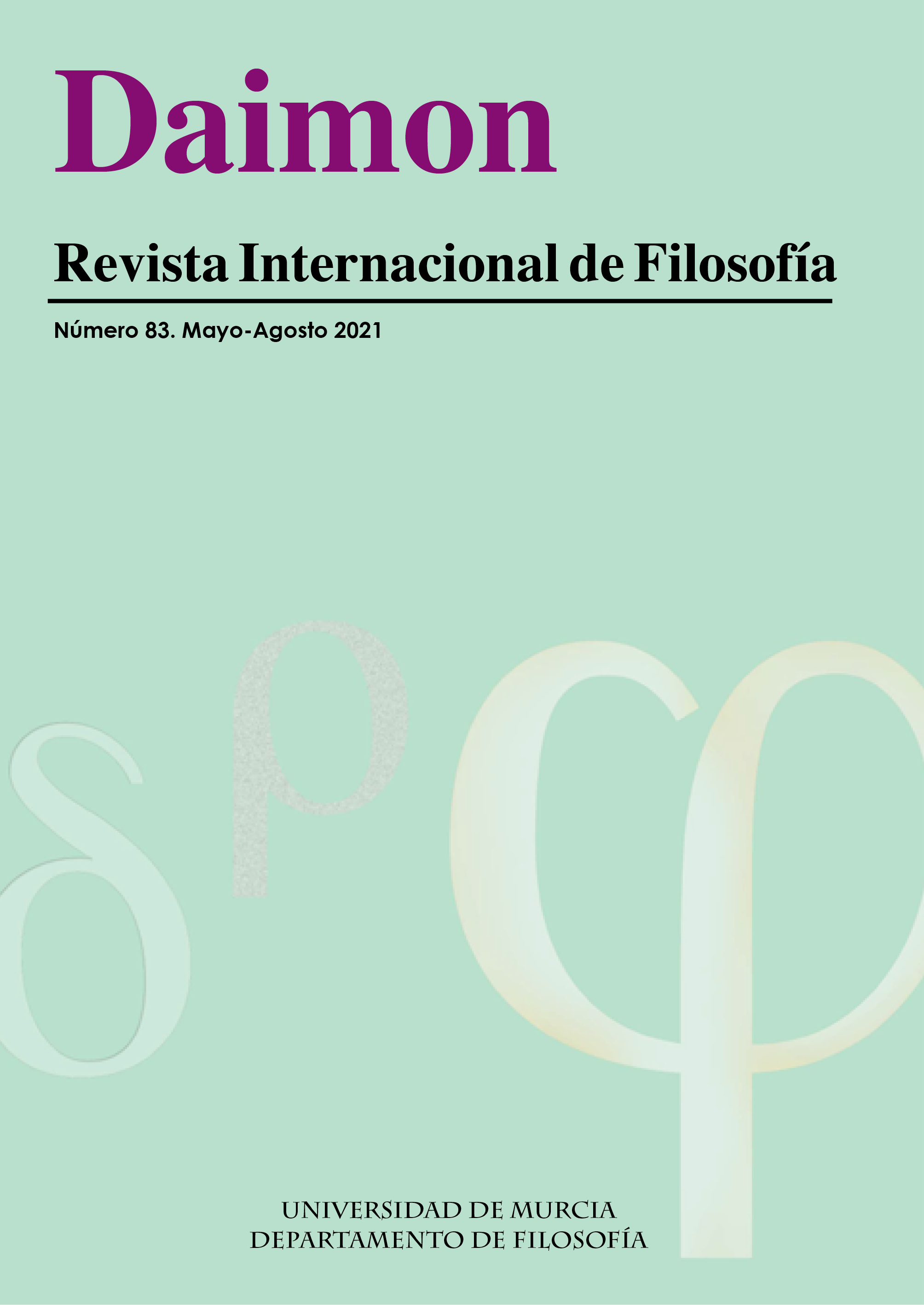La historiografía apologética en el Discurso Contra los griegos de Taciano el Sirio.
Abstract
In this paper we propose to highlight a little studied aspect of the Discourse Against the Greeks of Taciano (circa 170); we refer to the introduction of historiographical discourse in Christian apologetics. In fulfillment of our objective we will give account, on the one hand, of the idiosyncratic character of the production of this apologist in the context of the defense of the Christian faith in the s. II and we will analyze, on the other hand, what according to our line of research is the most relevant of his controversial modus cogitandi: the rejection of Philosophy as a way of access to Christianity for people of high culture and the introduction of the historiographical discourse as a guarantee of truthfulness.
Downloads
-
Abstract1024
-
PDF (Español (España))671
-
HTML (Español (España))229
References
BINGHAM, Jeffrey-JEFFORD, Clayton (eds.) (2016), Intertextuality in the Second Century, Leiden-Boston: Brill.
DODDS, Eric Robertson (1965), Pagan and Christian in an Age of Anxiety, Londres: Cambridge University Press.
EDWARDS, Mark-GOODMAN, Martin-PRICE, Simon (eds.) (1999), Apologetics in Roman Empire, Oxford: Oxford University Press.
ELZE, Martin (1960), Tatian und seine Theologie, Göttingen: Andenhoeck & Ruphecht.
HUNT, Emily (2003), Christianity in the Second Century. The case of Tatian, London-New York: Routledge.
INOWLOCKI, Sabrina (2016), «Josephus and Patristic Literature», en Howell Chapman, H.-Rodgers, Z. (eds.), The Blackwell Companion to Josephus, UK: Wiley-Blackwell, pp. 356-367.
MARTÍN, José Pablo (2013), «La historiografía como género apologético en los orígenes cristianos», en Alesso, M. (ed.): Hermenéutica de los Géneros Literarios: de la Antigüedad al Cristianismo: Buenos Aires, Editorial de la Facultad de Filosofía y Letras (UBA), pp. 71-77,
McGEHEE, Michael (1993), «Why Tatian never “Apologyzed” to the Greeks», Journal of early Christian Studies, n° 1, pp. 143-155.
MITCHELL, Margaret-YOUNG, Frances (eds.) (2008), The Cambridge Histoy of Christianity. Origins to Constantine, Cambridge: Cambridge University Press.
MORESCHINI, Claudio (2013), Storia del Pensiero Cristiano Tardo-Antico, Milano: Bompiani, 2013.
MORESCHINI, Claudio (2004), Storia della Filosofia Pagtristica, Brescia: Editrice Morcelliana, 2004.
NASRALLAH, Laura (2005), «Mapping the World: Justin,Tatian, Lucian, and the Second Sophistic.», Harvard Theological Review, n° 98-3, pp. 283-314.
NORELLI, Enrico (1996), «La critique du pluralisme grec dans le Discours aux Grecs de Tatien» en POUDERON, Bernard-DORÉ, Joseph (eds.), Les apologistes chrétiens et la culture grecque, Paris: Beauchesne, pp. 81-120.
PETERSEN, William (1995), Tatian´s Diatesseron. Its creation, dissemination, significance, and history in scholarship, Leiden-New York-Köln: Brill.
POUDERON, Bernard (2005), Les Apologistes grecs du IIe siècle, Paris: Les Éditions du Cerf.
QUASTEN, Johann (1961), Patrología I, Madrid: BAC.
TACIANO (1954), Discurso contra los Griegos (trad. y ed. Daniel Ruiz Bueno), en Ruiz Bueno, Daniel, Padres Apologistas Griegos (s. II), Madrid, BAC, pp. 572-628.
TATIAN (1982), Oratio ad Graecos and fragments (trans. and ed. by Molly Whittaker), Oxford, Clarendon Press.
YOUNG, Frances-AYRES, Lewis-LOUTH, Andrew (eds.) (2004), The Cambridge History of Early Christian Literature, Cambridge: Cambridge University Press.
Las obras que se publican en esta revista están sujetas a los siguientes términos:
1. El Servicio de Publicaciones de la Universidad de Murcia (la editorial) conserva los derechos patrimoniales (copyright) de las obras publicadas, y favorece y permite la reutilización de las mismas bajo la licencia de uso indicada en el punto 2.
2. Las obras se publican en la edición electrónica de la revista bajo una licencia Creative Commons Reconocimiento-NoComercial-SinObraDerivada 3.0 España (texto legal). Se pueden copiar, usar, difundir, transmitir y exponer públicamente, siempre que: i) se cite la autoría y la fuente original de su publicación (revista, editorial y URL de la obra); ii) no se usen para fines comerciales; iii) si remezcla, transforma o crea a partir del material, no podrá distribuir el material modificado.
3. Condiciones de auto-archivo. Se permite y se anima a los autores a difundir electrónicamente las versiones pre-print (versión antes de ser evaluada) y/o post-print (versión evaluada y aceptada para su publicación) de sus obras antes de su publicación, ya que favorece su circulación y difusión más temprana y con ello un posible aumento en su citación y alcance entre la comunidad académica. Color RoMEO: verde.











